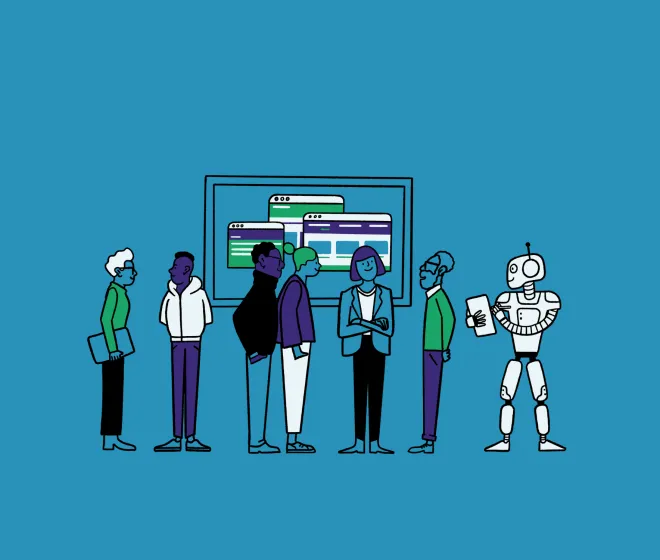AI as a central megatrend: Opportunities, challenges and essential future skills



Which developments will particularly influence our society over the next ten years? The Stifterverband, together with the “Future Skills 2030” taskforce of the Alliance for Future Skills, has explored this question in an online survey.
In April 2025, 525 people from politics and public administration, business, academia, and civil society assessed the importance of various megatrends over the next ten years as part of the survey. The evaluation of the survey provides an important basis for revising the Stifterverband’s Future Skills framework.
The results show: Artificial Intelligence is, across all sectors, rated as one of the most important megatrends of the coming decade. In addition, climate change, digitalisation, democratic culture, and disinformation are among the five most significant megatrends. The high relevance of AI is particularly clear from the evaluations by participants from the business sector: they even rated Artificial Intelligence as the most important megatrend. Another interesting finding: while those under 30 assessed climate change as the most significant megatrend, those over 60 perceived digitalisation as the most important issue.
It has become clear that (generative) AI has long ceased to be relevant for only specific subject areas, but now influences both private and working life across the board. While in everyday working life, AI often promises more efficient processes and easing of everyday routine tasks, our media landscape is also being quite critically influenced by AI. There is a danger that algorithmically filtered content reinforces existing opinions, boosts echo chambers, and increases political polarisation. In addition comes the challenge that AI-generated texts, images, or videos are hardly recognisable as such. This raises the risk of targeted disinformation.
The double effect of AI technologies is also apparent in the context of climate change: on the one hand, AI can help reduce emissions – for example, through optimised management of electricity networks, more efficient energy systems, or data-driven forecasting models in mobility and agriculture. On the other hand, the increasing use of AI – especially due to computationally intensive training processes of large models – leads to a growing demand for data centres, which in turn consume significant amounts of energy and water. Thus, here too, the question arises of using resources responsibly and sustainably.
It is clear that the requirements in the field of Artificial Intelligence now go far beyond understanding technical basics and the targeted use of appropriate tools. Cross-cutting future skills are also needed. For the Alliance for Future Skills, these developments result in a clear call to action: AI competences should also incorporate ethical, social, and ecological issues.
The Future Skills framework of the Stifterverband is currently being further developed based on the latest survey results and several expert workshops and is being prepared in such a way that technological, social, and political questions can be considered in a balanced manner. Higher education institutions, educational establishments, and companies thus receive well-founded guidance for designing forward-looking learning and qualification processes.
The full data from the megatrend survey as well as interim results from the expert workshops can be found here on Miro.
Learning opportunities connected to the megatrends on the AI Campus
- AI basics: Introduction to AI, IBM – Basics of AI, AI for Everyone
- Climate change: AI and Sustainable Development Goals
- Digitalisation: Data Literacy – Basic Course on the Data Lifecycle
- Democratic culture: AI4Democracy – Basics of AI in Democracy
- Disinformation: Podcast episode on “KI kapiert”, TikTok channel “Keeping up with AI”
About the Alliance for Future Skills
The Alliance for Future Skills within the Stifterverband’s education mission aims to significantly increase the proportion of higher education institutions that embed AI competences and future skills firmly into their educational offerings.

Anna Sandmeir holds a doctorate in psychology and is a programme manager at the Stifterverband in the Alliance for Future Skills. She is in charge of a working group that is supporting the revision of the Stifterverband's Future Skills Framework. Her focus is on designing co-creative workshop formats and teaching interdisciplinary skills.

Annika Lübben is a research assistant for Future Skills & AI and is pursuing her doctorate in organisational studies on the topic of future making. She has an interdisciplinary academic background that includes cultural studies, philosophy and digital cultures. This was shaped by study and research stays in Bremen, Lüneburg, Limerick and San Francisco. Annika also gained professional experience in community development at the intersection of social innovation and entrepreneurship.